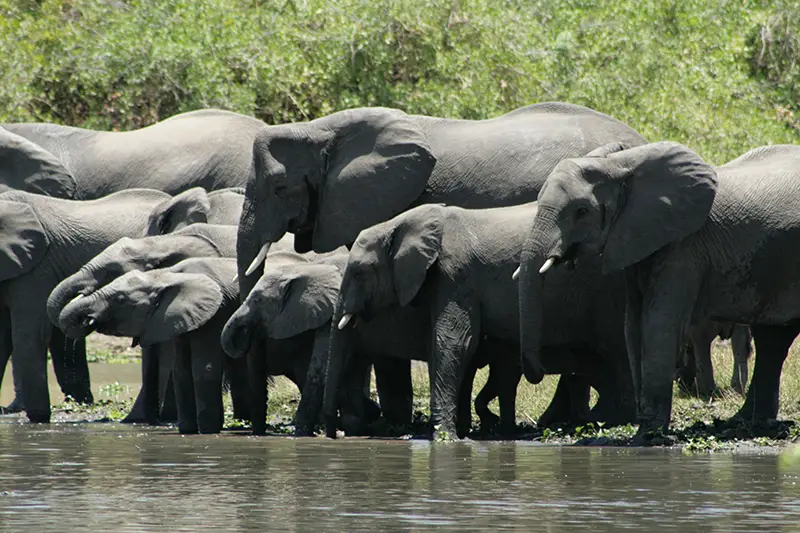By Mary Taruvinga
The Zimbabwe Parks and Wildlife Management Authority (ZimParks) has said the lack of funding to manage elephants in its game reserves is negatively impacting elephant conservation efforts, leading to increased human-wildlife conflict.
The authority is working with a budget of US$500,000 at its biggest game reserve, Hwange National Park, against the required US$21 million to manage the ever-increasing elephant population.
ZimParks recently hosted a review and updating workshop on the Zimbabwe Elephant Management Plan (2021-2025) to assess implementation of the plan, emerging issues, evaluate management approaches, and exploring effective strategies from past experiences which was for the first time attended by chiefs from Hwange.
In a statement issued on Thursday, ZimParks spokesperson Tinashe Farawo said chiefs complained that their affected communities have not benefited from their proximity to the wildlife.
“The chiefs expressed their concerns on the lack of tangible benefits for communities who bear the brunt of sharing borders with elephants and a relief fund for injured community people.
“The traditional leaders expressed concerns over the ongoing poverty faced by these communities, worsened by crop raiding, resource competition, and incidents of injury and property damage caused by elephants,” he said.
The increased elephant populations and localised overabundance have resulted in increased human-elephant conflicts.
According to Farawo, while this is happening, ZimParks efforts to curb the crisis are dampened by a lack of resources.
“The country’s elephant conservation efforts are severely under-financed, with the current budget for Hwange National Park falling below US$500,000 annually, compared to the estimated US$21 million required based on management costs in other well-managed protected areas in Southern Africa,” he said.
Farawo also said sustainable utilisation is hindered by various factors, including global trade restrictions.
Meanwhile, while elephant poaching for ivory has declined, effective partnerships have played a vital role in enhancing conservation efforts.
Farawo said elephant conservation requires collective efforts from all stakeholders.
Zimbabwe has the second-largest elephant population in the world, with an estimated 82,000 elephants.
While Zimbabwe is lauded for its conservation efforts, the elephant population is growing faster than the environment can sustain, leading to human-wildlife conflict and habitat degradation.
